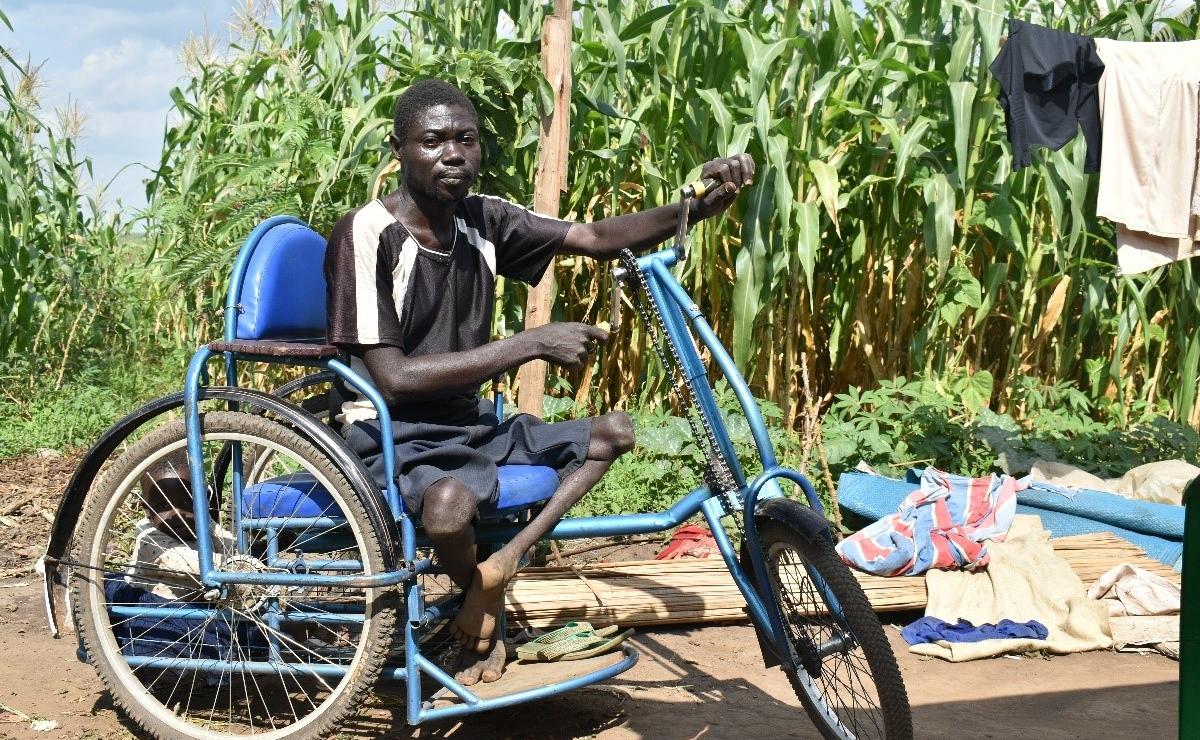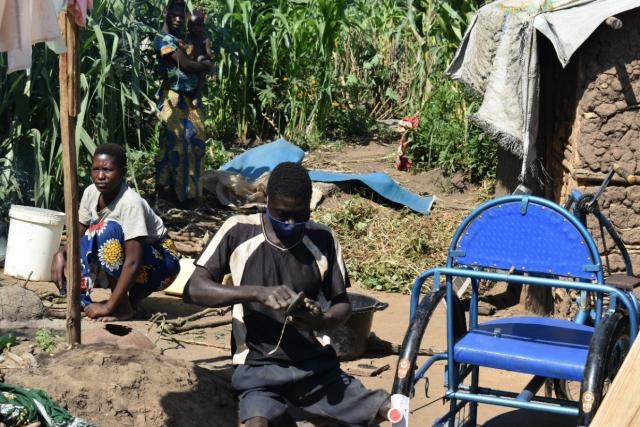Mobility devices and grants restore hope to refugees living with disability

Since his childhood, Lazarus* (not his real name) a 41-year-old who was born crippled found it hard to crawl to do daily work and access places including market areas, and school.
Life was even harder when he arrived in the Kyagwali refugee settlement after his wife and children helped him to flee the war in the Democratic Republic of Congo in 2018. As a refugee, he found it hard to access distribution points to get food which he had to collect in person.
Thus, in February this year, Lazarus could not believe his eyes when he saw a group of people, including LWF staff and physiotherapists, walk into his small compound.
“They were carrying my tricycle in a vehicle and were looking for me in my village,” Lazarus recollects with Joy.
A few days ago, while crawling and struggling to access one of the food distribution centres, Lazarus had met staff from LWF who called him aside for discussions about his condition and recorded his name and location.
“He promised to support me, but still I could not believe his words,” adds the excited Lazarus.
He notes that the development restored his hope that he could now move with ease and do his daily activities like any other person without having to struggle.
“My journey hasn’t been easy. At times, Boda Boda riders would sympathize and offer me a lift, but others would request money to transport me, which I would deduct from the money I receive in place of food. This would mean that being left with less money to take care of my family,” he recounts.
Lazarus is one of the vulnerable individuals including, women, men, children, youth and elderly persons that have received mobility devices and other benefits from LWF Uganda with funding from the United States
Government Department of State, Bureau of Population Refugees and Migration (PRM)
LWF also partners with an International organization, Humanity & Inclusion, to offer physiotherapy services to vulnerable people living with disabilities. For sustainability, the beneficiaries are trained to handle the devices with care and do minor repairs where necessary.


